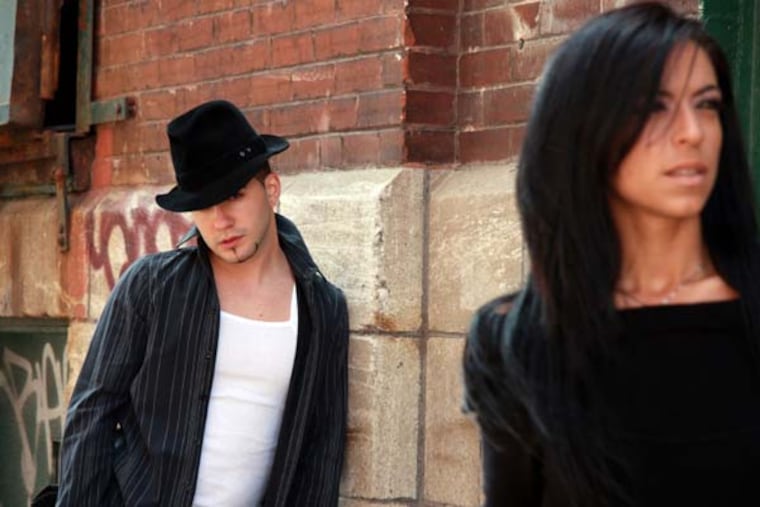Those catcalls aren't cute. They're harassment
Hey big boy, keep your comments and your hands to yourself.

I MUST HAVE been 15 or 16. I was coming home from school and had just walked into my building on the Grand Concourse in the Bronx. Maybe I was fiddling with my keys, or waiting to get buzzed in. But suddenly someone was behind me, a guy, and his hands were everywhere. But before I could move or scream, poof, he was gone. Happened that fast. Over that fast.
I don't remember if I told anyone. Past the initial shock and fear, I didn't know what to do. What was I supposed to do - run after him? Call the cops so they could put out an APB on a phantom perv? Tell someone? Forget about it?
I guess I forgot about it, until I came across a story in Sunday's New York Times. In it, a young woman named Erika Anderson writes about being groped in her Crown Heights neighborhood, and how she initially dismissed it.
A friend had been mugged; that was much worse, she thought. Until friends told her that she had been sexually assaulted.
The words "sexually assaulted" stopped me because what Anderson described rang so familiar, and yet I had never considered what happened to me as sexual assault.
Neither did Anderson. "Even though I reported it - a first for me - I discount the whole thing because it was sort of nothing, because it's something women experience every day."
Exactly. I chalked it up as some crappy thing that happened to me. And every day and everywhere women do the same thing when dealing with unwanted sexual advances, from catcalls to unwelcome touching.
Emily May is a young woman who helped form Hollaback! a grass-roots organization to combat street harassment.
When she first moved to New York City, she figured being harassed on the street was a part of daily life.
"I knew it wasn't right, but I thought that's what women had to deal with if they wanted to live in a city," she said.
And then she and other female friends shared their stories with their male friends.
"You live in a different New York City than I do," one guy said.
That's when it hit May. This was wrong. Something had to change.
So in 2005, she and others started Hollaback!, which now has local affiliates in 71 cities and 24 countries, including Philadelphia.
Every day I see young women deal with degrees of harassment. In a survey released by Hollaback! Philly in 2013, 93 percent of more than 400 respondents said they had been harassed in the past year, 18 percent daily.
Just yesterday, I saw some guy yelling out all kinds of things to a young woman walking by. When she didn't respond, he got nasty, or nastier.
"You ain't all that, bitch," he said, as the woman and I shared a knowing, and nauseated, look.
When I asked May what I could have done, she said that knowing glance did more than I thought. It signals to her that she's not alone, May said, that what she just experienced is wrong and shouldn't be tolerated.
The movement is catching on. Last year, several Philadelphia women shared their stories and concerns about street harassment at a City Council hearing. The group is working on a citywide, gender-based safety audit to find solutions for citizens who feel unsafe on Philly streets.
Philadelphia-based artist Hannah Price photographed the men who catcalled her and created a captivating photo exhibit called "City of Brotherly Love."
Pussy Division, a group of Philadelphia feminist activists, has posted antiharassment stencils and posters around the city. And last year, Hollaback! Philly launched an ad campaign on SEPTA, something they will be doing again.
Anna Kegler, deputy director for Hollaback! Philly, said the goal is to change the attitude about something that's become so normalized, it's ignored.
"Years ago, workplace sexual harassment and bullying were normalized until the mentality changed," Kegler said. "People need to start thinking about street harassment along the same lines."
But the real responsibility to stop street harassment rests on those doing the harassing.
So here are a few tips, guys. A "Stop Being A Skeev 101," if you will: That woman who caught your eye doesn't have to stop or smile or even acknowledge your existence; you have no right to her time, attention or body; and really, has "Hey Baby, Hey Mami" ever worked for you? Bottom line, that kind of attention isn't a compliment or harmless. Get physical, and it can be a crime. Every woman in this city should be able to walk down a street without feeling uncomfortable and unsafe.
Hollaback! encourages people to share their stories on their website ihollaback.org or locally, at philly.ihollaback.org. There is also a mobile app for people to document and map street harassment.
I shared my story. Now it's time to share yours.
Phone: 215-854-5943
On Twitter: @NotesFromHel